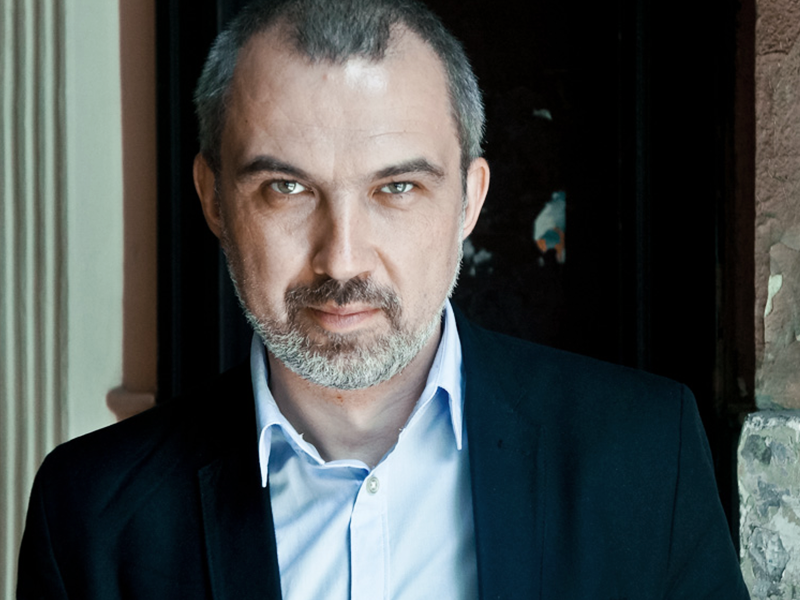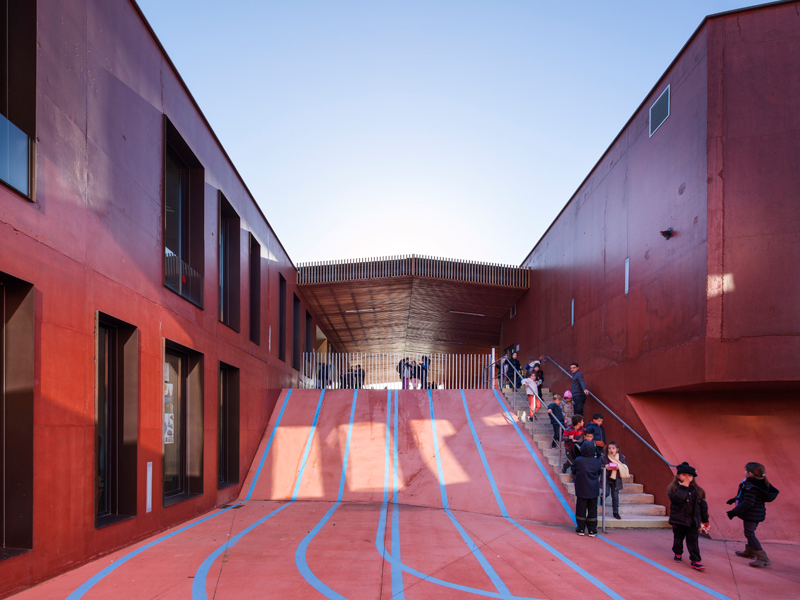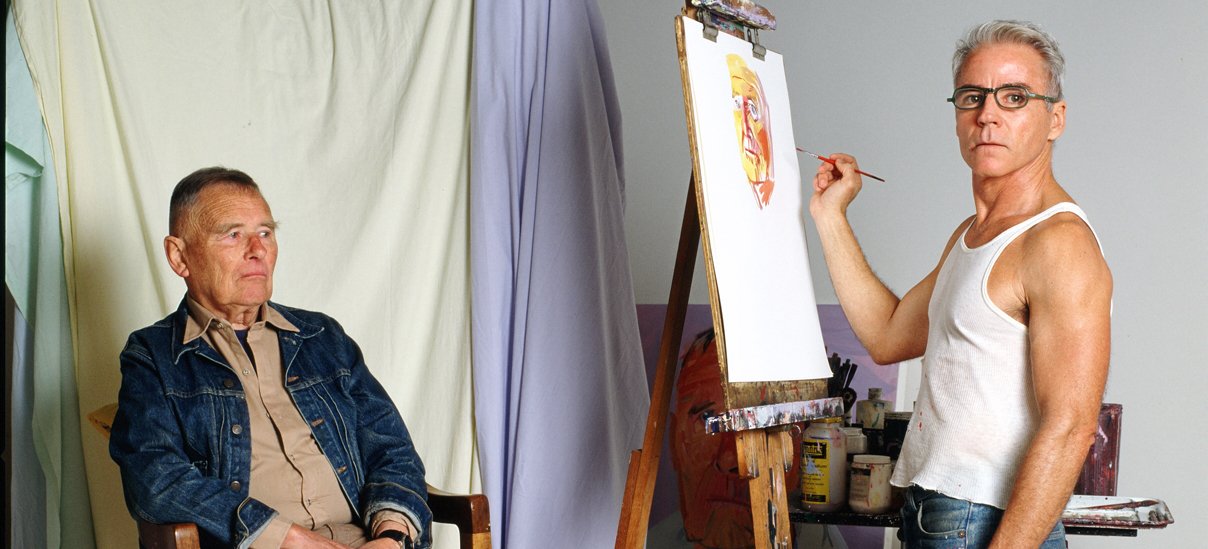
Alhierd Baharevitch: "Belarus is the Place Where Literary Subjects Are Just Lying Under Our Feet"
What do readers expect from today’s literature?
I think the most interesting thing in literature today is the possibility of seeing a contemporary protagonist, a person who walks the same streets, coming across places familiar to the reader. Readers get the impression that they are living in the book themselves, as they understand the character and feel close to him. Those who buy books in anticipation of aesthetic pleasure and an intellectual challenge are interested in reading about themselves, about the lives we lead today, about people who live here and now, in contemporary Belarusian cities and towns.
Another vital theme is free people in an unfree country. Here, in Belarus, in 2016. How do they live? What makes them tick? What are the challenges that they face? When I address an audience, hold a workshop, appear before young writers, I always say: “Write about our present day, it’s well worth it.” We are living in incredibly interesting times.
But what do you find so interesting about our times?
We live in an unfree country. You have to somehow adapt, to accept or not to accept the rules of the game, to accept or not to accept compromise with the state, society, oneself…
But this is more of a problem than a precondition for a creative search…
Yes, but this is a problem that has a fantastic potential for creativity. People living in an unfree society, in an unfree state, have many more topics for conversation. Their lives are rich and interesting, they face a large number of problems and often have to make a choice. All of this is living material for literature. That is why Belarus, its big and small cities are places where subjects are simply lying everywhere around under our feet. There are so many absurd situations, so much evil, so much intolerance, so many clashes and conflicts… So much love and hatred… A person has to change constantly to survive here.
And you would know, as you have received the PEN Centre’s scholarship and lived for several years in Germany.
Yes, indeed. There, in a democratic country, everything is much simpler. This tension, pressure is non-existent. People have more personal space. More freedom and this means more loneliness. People are more often left one-on-one with themselves. And in general, this permeates contemporary Western literature. There’s more introspection there, constant self-analysis and reflection. It is less putting on an act, less absurd, less ironic.

Your prose has been called cold, intellectual. Are you a cynic?
Readers and critics say that in my latest books everything has changed: I have finally written a novel where you can sympathise with the main character… Before I never thought about dialogue with the reader, about his emotions and reaction. I was writing only for myself. And now I’m giving this thought. Perhaps, coming back from Germany, I have rediscovered our country and these people. I saw how much pain there really is here, hope, this distinctive Belarusian melancholy. All of this inspires me. Here it is, unsung, unexpressed by anyone, lying on the surface. We all walk these streets…
One of your novels is called Shabany. Everyone who lives in Minsk knows that Shabany is the dead-ass neighbourhood in the city. Why did you devote an entire novel to this place?
As I’ve already said, I want to write about what is happening here and now, in real life. Shabany is the embodiment of this pursuit. I was raised in Shabany, I went to school there, and left it in 1999. Now my parents live there. This place is a whole world in itself; Shabany is an interesting phenomenon of Belarusian reality. Neither a village nor a city, but rather a place that preserved its impersonality, a place without history. On the other hand, any European city has its own Shabany. How are they similar to that of Minsk? What sets them apart? These questions are fertile ground for creativity.
You said that you write for yourself. Many have condemned such an approach towards creative work, as it is considered that the calling of a genius is to make the world beautiful and more sublime.
I don’t agree with this. To make the world more sublime is an approach that was relevant in the 19th century. As for the calling of contemporary literature, then I don’t know what it is really about. But the calling of an individual writer… If it really did exist, then it could be worded in the following manner: to talk about what other people cannot talk about or are afraid to talk about.
What are you trying to say that everyone else is keeping quiet about?
For example, we have a few “dark closets”, taboo subjects that are not okay to talk about. Who is better to open these terrible doors than writers?
While still in Hamburg I had written two essays about Yanka Kupala, the classic of Belarusian literature. The first was devoted to Kupala the living and the second to Kupala the dead. In them I talked about the fact that in the 1930s Kupala dutifully fulfilled the role that was imposed on him, and that was why he ceased to be a poet and a writer. This provoked outrage, as “it’s unacceptable to talk about classical writers like that”.
Or here’s another “dark closet”. In my last novel White Fly, the Killer of Men (2015) I write about discrimination against women, about their rights, about equality. Belarusian literature has not yet uttered a word on this. But the time is ripe. My book came out at the very end of 2015 and it is already receiving a lot of very different opinions and reviews. People are concerned about this subject.
And what kind of reviews were these? Are you happy about them?
You see, Belarusian writers live in a situation that they are happy about any reaction. After all, nine out of 10 books that come out in the Belarusian language receive absolutely no reviews whatsoever. I don’t go on the Internet to search for what is said or written about my books, but if I come across something on the web, I read it. And I can see that White Fly has hooked.
It has a well-constructed plot. And yet I did not betray myself. Baharevich is absolutely recognisable in it. My style, my approach to literature, it’s all there.
Have you and the publishers who published this book earned anything from it?
I don’t make a living from my books. I would like to explain the situation in Belarusian-language literature (I know nothing of Russian-language Belarusian literature).
Writers in Belarus, in the vast majority of cases, don’t make a living from their books and don’t live off literature. In general, writers have some type of a “normal” job where they earn money, and they publish books at their own expense: you write a book, go to a publishing house, sign a contract, pay out of your own pocket, print, and often the author sells his books himself, or cuts deals with bookstores.
I personally do not belong to this category of writers. I don’t have any other job. I don’t do anything besides literature. I just write. I do not publish books with my own funds – only at the expense of the publishing house. How many books have I published? I believe around 14.
This leads to the logical question: how do I make a living? There are other opportunities that I make use of. For example, foreign scholarships. Recently, my wife and I returned from Paris where I received the scholarship of the Institut Français and on which I was able to live and work in France for three months. My novel The Children of Alindarka will come out in French this autumn.
These can also include author speeches, participation in international festivals. I also write articles, essays for various media outlets, and have my own columns in some of them. I was the presenter of several original projects on Radio Svoboda, and now I keep my own columns on several websites. I write a lot for online publications and engage in a lot of public speaking.

Does such work offer you creative pleasure and satisfaction?
As long as I’m not pressurised, as long as I am not told how and what to write, then yes. My columns are fully-fledged essays where I write about everything that I consider to be interesting. And it’s also literature. What’s important for me is to be doing literature or writing about literature.
Has it ever crossed your mind to write a novel for a broader audience?
It’s not all that simple. In order to do that, I would have to radically change. To change my view of the world. To reconcile, to adapt. If we were to approach our talent from a utilitarian perspective, we’ll be faced with the big problem of choice: is what we’re doing creative work? Or simply an attempt to make money and achieve fame?
So you believe that one excludes the other?
One exists with the other, but to a certain limit. The question is whether you’re willing to cross that limit. I am not. I’m a creator, artist, I’m willing to sacrifice much in life to remain a free creator and write what I want, and not what is expected from me. It’s always inconvenient to be free.
On the other hand, we have the mass market. Why not come to terms with yourself? There’s a category of people who want to read in Belarusian but perhaps some “bedside” works. And someone will write these anyway. Why shouldn’t it be you?
Well this question: “to come to terms with yourself” frightens me. I’m not willing to do that. I once decided that I will work in literature. My teachers include long-dead writers such as James Joyce, Vladimir Nabokov and Franz Kafka. If they had “made a deal with themselves” they would have never written their great novels.
It is my choice not to be a “mass market author”. An author who wishes to depend on this conjuncture has to come to terms with the fact that his life won’t be at all easy. If I wanted to be a well-selling and mass-market author, I would have written completely differently. The language I use would have changed, my approach to my work. My relations with publishing houses would have changed. I would be doing everything differently; I would have even looked different. After all, what matters for mass-market literature is that the author possesses a distinctive image that he exists in the information space, like a memorable and beautiful image on a cover.
If we were to recap your thoughts, you’ve made your choice in favour of an elitist literature. And even author’s fees can’t change your mind?
I live in poverty, but this is my conscious choice. My wife and I manage somehow to make ends meet, but at least we’re free. For me there’s a certain pattern: the more people there are praising a book, the worse the book is. If we were to work for “millions”, then we’ll go as low as becoming primitive. Good literature always appeals not even to thousands or hundreds, but to an individual person. To compromise may be worth it, but there’s always a risk that you cross a certain threshold, after which you will simply lose all respect for yourself.
Besides, the situation is such now in Belarus that you can write a great book, take into account the whole conjuncture and the demands of the audience, and it still won’t sell. Laws of the Western market don’t work here. Belarus is a mystical country.
Are you a member of the Belarusian Writers’ Union?
I have left it, as I believe that it’s a meaningless Soviet organisation that has long exhausted itself. Creative organisations are a good subject for satire in general. However, I remain a member of one creative organisation and that’s the Belarusian PEN Centre.
Do you see a problem in that Belarusian creators exist each on their own?
Maybe, but on the other hand, what else can you expect from an artist? Who will waste time making friends with colleagues? What matters is creative work, and it’s impossible without solitude. By the way, at the PEN Centre, discussions are held annually where we meet and talk about subjects such as “Who are we, Belarusian writers?”; “Who are we in the eyes of society?”; “Who are we in our own eyes?” Usually they are led by the poet and translator, Yulia Timofeeva. There we talk a lot about the disunity of writers, solidarity…
Why read contemporary literature? Can one find advice there, answers to questions such as how to live, and where is the way out of difficult situations?
I think literature should not give answers; it should help overcome fear. The fear to speak, the fear to read, the fear to write or think. The fear of making the first effort. What comes next is the responsibility of each individual reader. Literature does not bear responsibility any further than that. It opens doors, please go ahead if you wish, come in and sort it out yourself. And if you don’t want to, live in accordance with your old myths and fears.
I am certain that no one is obliged to be a hero. No one is obliged to be brave. The vast majority of people are living cosily in the world that they came up with and built themselves. But if you’ve already opened a book…. then get ready. It’s going to be painful, scary, and perhaps you will learn something very unpleasant about yourself. And it’s only up to you whether you call this the truth.




